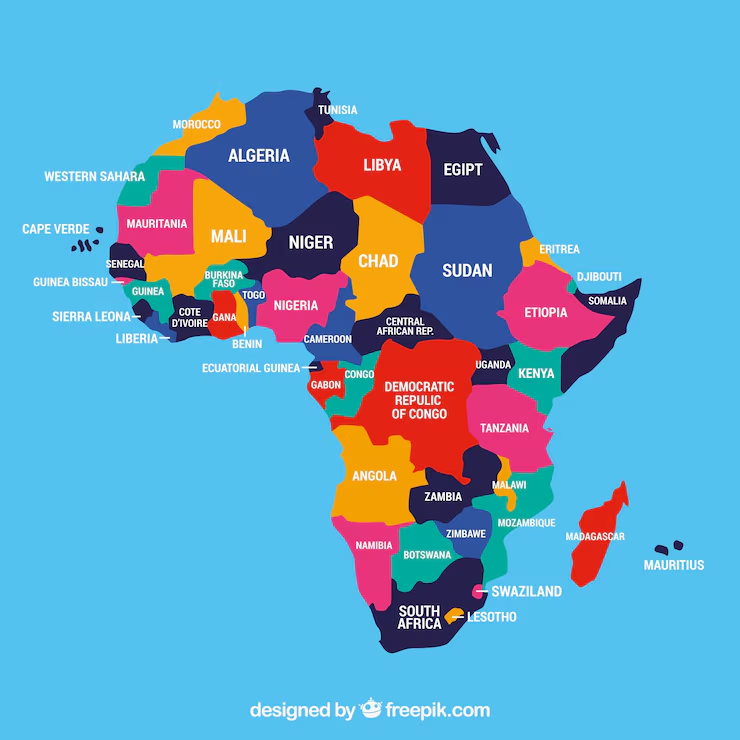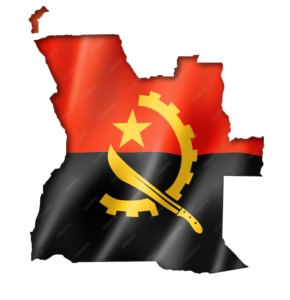The United States of Africa is meant to describe a kind of ideal geographic or politically economic territoriality for Africa, much like that of the United States of America. One would wish for the constituting of a single, federated political structure under which these 54 African nations would belong to a common set of governments, grouped by patronizing foreign policy, economic systems, and military structures. This desired vision of Africa has been suggested by African leaders, intellectuals, and pan-African thinkers over the course of the 20th and 21st centuries as a road towards the promise of a somewhat integrated Africa.
Below is a further exploration of the concept and how it has evolved:
- The Genesis of the United States of Africa Concept
The idea of united states of Africa is also the heritage of Pan Africanism, which is a political and cultural movement to promote solidarity and unity of African nations and peoples. The dream of united Africa has been dreamt by leaders like Kwame Nkrumah, the first president of Ghana, and among the foremost proponents of African unity.
Kwame Nkrumah’s Vision: Nkrumah aggregated the belief that all African countries should come together both politically and economically so as to get rid of the wastelands left by colonial powers, visionary for the economic development of the continent, and aimed at ensuring that no foreign power interfered with the negative sovereignty of the continent. In a book entitled Africa Must Unite (1963), he envisioned a federal African government that could address common problems such as poverty, underdevelopment, and the continued influence of colonial powers.
Pan-African Congresses: The First Pan-African Congress was organized in 1900, and subsequent ones that followed were based on uniting Africans together. Obviously, Nkrumah’s ideas were inspired by these earlier congresses. These were mainly early 20-century congresses, which on foundations intellectual and ideological broaded the surface for the mainstream pan-Africanism with calls for economic and political unity.
- The Organization of African Unity (OAU) In 1963, the Organization of African Unity (OAU) was founded by some African leaders- Kwame Nkrumah included-to promote African unity, solidarity and economic cooperation while decolonizing the continent. While it failed to immediately realize the dream of a united states of Africa, it brought Africans significantly closer toward political integration, but was still hampered by national sovereignty of member countries, which prevented it from achieving a fully unified political structure.
The Role of the OAU: OAU was a very important forum for the African countries to chalk out their common issues-from economic development and peacekeeping to the end of colonialism. It was helpful in mediating conflicts and advancing the liberation movements in Southern Africa, but was not empowered to create a government or common policies for the whole region.
Problems within the OAU: One of the very major weaknesses of the OAU was that many of the African countries were resistant to surrendering sovereignty to a central body. The different political, cultural, and economic environments of African states made it difficult to bring about a single governance structure.
The African Union’s Vision for Unity: Even as the AU advocates for a more integrated continent, national sovereignty is still subscribed to under the principle of respect, hence, it hasn’t fully realized the vision of a ‘United States of Africa’. Nonetheless, the AU created a more united Africa through programs such as Agenda 2063, which anticipates an integrated, prosperous, and peaceful Africa.
- Advocacy and Proposals for the United States of Africa
Despite all the advances OAU and AU made, many leaders and activists are still pushing for more integration and the establishment of a United States of Africa. These voices have become some of the most resounding in the recent decades of African history:
Muammar Gaddafi: As the leader of Libya until 2011, Muammar Gaddafi was a staunch advocate for a united Africa. One of his grandest ideas was that of a United States of Africa put forth in the early 2000s, wherein he strongly campaigned for a single African government. Federal laws in Gaddafi’s realm would concern the coordination of economic, political and military matters across the continent. He was pivotal in establishing the African Union but remained the sonorous trumpet of deeper integration.
Other Advocates: Some African leaders like Nelson Mandela, Thabo Mbeki, and Alpha Condé support African unity but are on a gradual realization of that goal. Under the AU was established the Pan-African Parliament (PAP) as part of much more political integration, though its powers are today advisory rather than significantly legislative.
- Challenges to the United States of Africa
The dream of a United States of Africa creates inspiration in many, but it must contend with some challenges to become a tangible reality:
Political Sovereignty: The national sovereignty of African countries is sacrificed for a centralized African government, which keeps many African leaders away. This is understandable because each African country has a history of complex cultural differences and conflicts among states.
Economic Gaps: Major economic disparities also exist on the continent. While some countries like South Africa, Egypt, and Nigeria have fairly developed economies, there are many others with poverty and underdevelopment as daily realities. Formulating a united economic policy beneficial to all African countries would prove to be one of the biggest challenges.
Cultural and Ethnic Diversity: Hundreds of ethnic groups and languages can be found in Africa, and such overwhelming divisions make it hard to create one identity that embraces all. Historical and recent regional and cultural identities have made conflict and tension difficult across the continent and make political integration hard.
Security Issues: Conflicts and security challenges continue to exist in Africa, from terrorism in the Sahel to civil strife in South Sudan and the Democratic Republic of Congo. A merged military and peacekeeping force would be more collaborative and coordinated, but because of these safety issues, they are difficult to form.
- Future for United States of Africa
This dream may not be realized into a United States of Africa, but it still affects African politics. In fact, many things are being done for integration, even including most sectors such as trade (AfCFTA), infrastructure development, and conflict resolution. The guide for this process remains the African Union, but the notion of a fully united polity. Each of these has become important to foster unity and buy into the idea of a United States of Africa. - The Future of United States of Africa
- The aspirational cast of the United States of Africa acts as a linchpin in African politics. It still carries an influence when it comes to efforts at integration-trade (AfCFTA), infrastructure development, and conflict resolution. The African Union is still the central institution into which this whole process would be affiliated, although the construction of a completely united political entity-in the sense of an analogue to the United States of America-remains a long-term goal.
- In short, the United States of Africa is a grand vision from which belief in a united Africa must be derived, yet many obstacles and challenges are found in the pathway. Moves to political and economic integration are still on the way, yet processes to a completely unified Africa face convolutions in pathways and many barricades. The concept keeps lingering on as a pan-Africanism figure of speech, representing the hope of many to realize increased cooperation and collective development among people across the continent.




